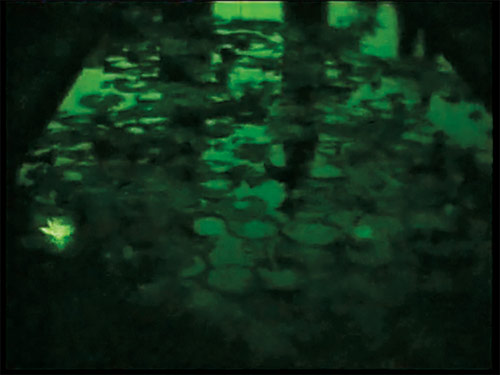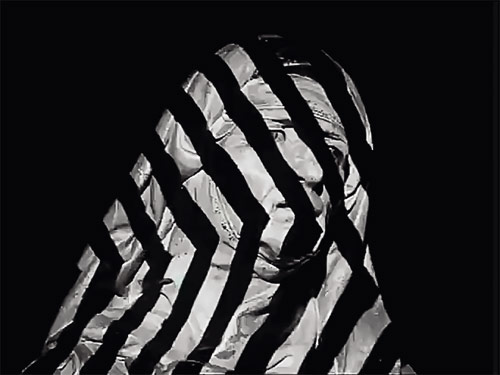1953-1955 / 1958-1960
Val del Omar
Aguaespejo granadino [Water-mirror of Granada] and Fuego en Castilla [Fire in Castile] are the outcome of technical obsession and grammatical delirium. Reminiscent of autos sacramentales – allegorical religious plays – composed like a musical score, both films contain multiple levels of meaning. They bring together mystical themes and narrations, articulated in pairs: water and fire, the aesthetics of Antonio Ruiz’s flamenco dance and Vicente Escudero’s, the African in Andalucia and the European in Castile, horizontal and vertical, ear and eye, plain and striped, invisible and hidden, and so on.

Val del Omar’s work – or ‘cinegraphy’ as he liked to call it – drew from the prolific generation of the rich context of the Spanish Republic and authors such as Federico García Lorca, Manuel de Falla, Luis Buñuel and Josep Renau, some of his earliest interlocutors. However, it was the dramatic quality of Miguel de Unamuno’s philosophy that had the most decisive influence on the troubled identity of his figurations, halfway between phenomenology and expressionism, with a strong mystical imprint.

During the Republic Val del Omar was actively involved in the propaganda films of the Pedagogical Missions, and started work on a film about the Holy Week festivities in the region of Murcia, and on the unfinished Vibración de Granada [Granada’s Vibration], where he left evidence of his own cinematographic grammar. But it was during Franco’s dictatorship that he made his most important films, Aguaespejo granadino and Fuego en Castilla: two definitive examples of his work. Acariño galaico [Galician Caress] was to be the third in his Tríptico elemental de España [Elemental Tryptich of Spain], but he never managed to finish it. Val del Omar was obsessed with control over the technical aspect of his films, and in this sense his mysticism is strongly materialist. He passionately claimed that whoever controlled the negative, the sound system and the camera lens would be the true owner of the image – the master of the spectacle of our time. To a certain extent, his work is an endeavour to reach such mastery in order to offer a schizoid, liberating and mystical response to the atmosphere of repression and National-Catholic autarchy that he was forced to live with. – PGR